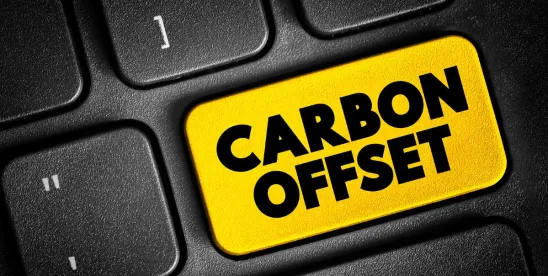On May 28, the Biden Administration released a joint policy statement and a set of principles for voluntary carbon markets. The statement provides an additional signal of the Administration’s support for voluntary carbon markets as a means of encouraging decarbonization efforts, while the principles put the weight of the Administration behind specific concepts underpinning the credibility of voluntary carbon credits and voluntary credit markets.
In recent years, as companies have increasingly set emission reduction targets, there has been a growing collective recognition that voluntary carbon credits and voluntary credit markets will play a role in helping companies reach their targets. At the same time, public scrutiny of these tools is increasing. What are the rules for generating a credit? What oversight is there to assure the rules are being followed? Do the credits represent true emissions reductions? And is purchasing carbon credits from someone else a credible basis for claiming emissions reductions?
Entities that devise the rules for voluntary carbon markets, third-party verification entities, and market participants themselves have advanced a number of initiatives to improve markets and verification requirements. For example, at COP-28 last December, six of the world’s leading carbon crediting organizations announced a collaboration to, among other things, “align our certification with common principles for quantification and accounting” and “support independent and robust assessment of our crediting programmes.”
The Administration’s May 28 policy statement is the latest of several recent measures with the potential to affect voluntary carbon markets:
- On March 6, the Securities and Exchange Commission issued a rule requiring climate-related disclosures for public companies. The rule requires disclosure of certain information about carbon offsets or renewable energy credits or certificates if they have been used as a material component of a company’s plan to achieve its targets or goals. In response to numerous lawsuits, the SEC voluntarily stayed the rule; nonetheless, the SEC’s position reflects a growing focus by regulators and other stakeholders on promoting transparency in voluntary carbon markets.
- On December 4, 2023, the Commodity Futures Trading Commission issued proposed guidelines for the listing for trading of voluntary carbon credit derivatives contracts. The guidance is intended to “encourage standardization in contracts to promote transparency and liquidity, accurate pricing, and market integrity.” Final guidelines have not yet been issued.
- On December 14, 2022, the Federal Trade Commission announced a public comment period for updates to its Green Guides for the Use of Environmental Claims, which are intended to inform marketers with respect to environmental marketing claims that would be considered unfair or deceptive under the Federal Trade Commission Act. Among other things, the Commission took comment on whether the Green Guides should provide additional information related to carbon offsets and climate change.
The Administration’s Principles for Responsible Participation in Voluntary Carbon Markets include the following:
- Carbon credits should meet “integrity standards and represent real decarbonization.” This principle includes the elements that carbon credits should be additional, unique, real and quantifiable, verified by independent third parties, and based on robust baselines, as well as represent permanent emission reductions. The principles also call for organizations that set credit certification standards to ensure effective governance and verification.
- Activities that generate carbon credits should avoid environmental and social harm, support co-benefits – e.g., biodiversity and sustainable development – and provide transparent and inclusive benefits sharing.
- Companies that purchase credits should work to promote emissions reductions in their own value chains. For example, this principle would encourage a cement manufacturer to support emission reductions by, and perhaps purchase credits from, sand, clay, and lime producers.
- The users of credits should disclose their use of credits at least annually and should provide enough detail for stakeholders to evaluate the integrity of the credits.
- Companies should rely on high-integrity credits as a basis for their public claims.
- Participants in voluntary carbon markets should help improve market integrity – e.g., by providing encouragement for high-integrity credits, improving transparency, and discouraging fraud and manipulation. This principle includes “promoting fair and equitable treatment of suppliers involved in credit generation,” which might be a reference to complaints that certain types of projects – such as carbon capture and sequestration – previously have not been able to qualify under certain accreditation protocols.
- Both policymakers and market participants should encourage efficient market participation, with lower transaction costs. This includes lowering costs for measurement, monitoring, reporting, and verification.
The statement and principles are non-binding. Nonetheless, because there has so far been little government involvement in setting standards for carbon markets, and because a broad range of stakeholders have a strong interest in building confidence in carbon markets, the statement and principles have the potential to set a baseline standard for voluntary action.
The policy statement and principles document is signed by Secretary of Treasury Janet Yellen, Secretary of Agriculture Tom Vilsack, Secretary of Energy Jennifer Granholm, Senior International Climate Policy Advisor John Podesta, National Economic Advisor Lael Brainard, and National Climate Advisor Ali Zaidi.







 />i
/>i

